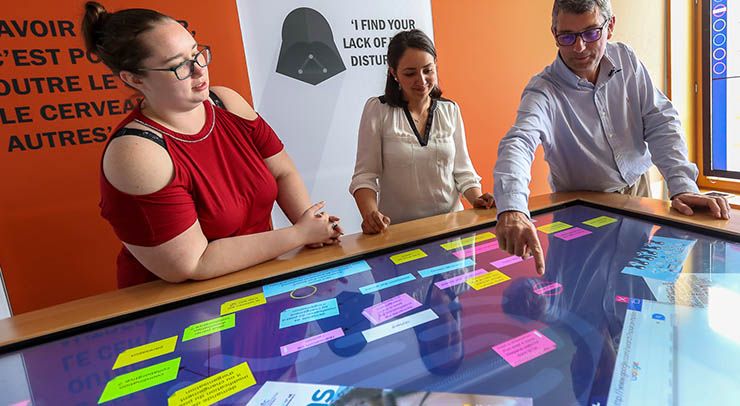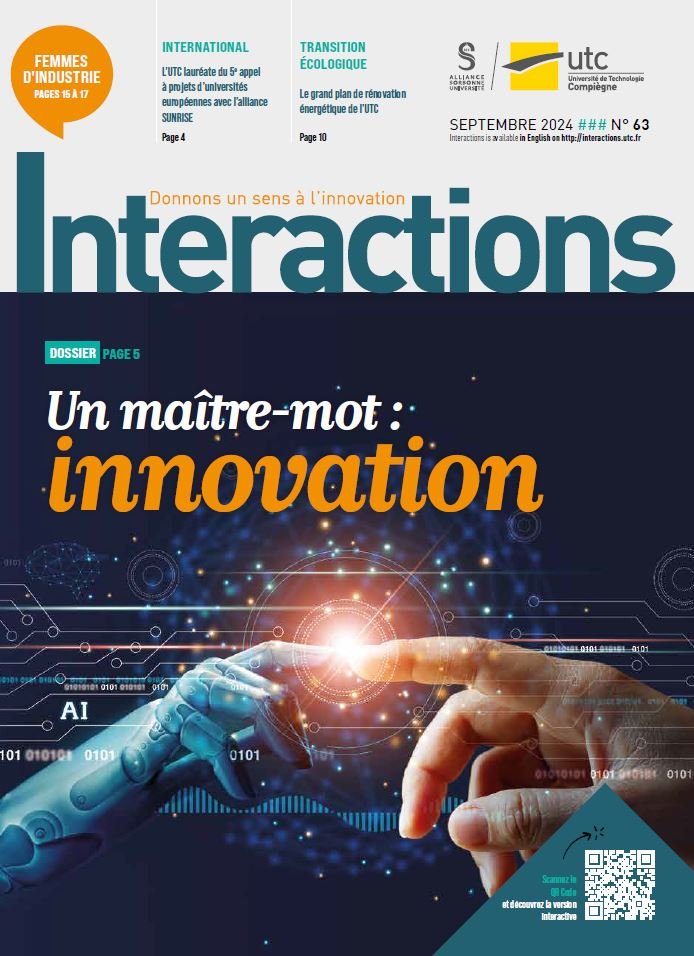Tactile tables for collaborative work

Cré@tion is the code name for an innovative research project in collaborative work (among students). The field observations are made in a specific collaborative work area at the UTC Digital Hall. There are 5 sets, comprising the tactile tables, multipoint screens and specific, associate software packages. The equipment is designed to be used in simultaneous group formations.
The research project code-named Cré@tion (acronym in French for Collaboration, reflection, activities and innovative digital work began at UTC in its Costech Lab. “Project Cré@tion focuses on collaborative work and learning patterns in this mode which calls for some large-scale tactile pieces of equipment where several persons can interact simultaneously on the same, shared surface. Our general hypothesis is that the introduction of devices like these will change the way we collaborate and lead to exploring and adopting specific collaborative practices and thus induce a specific form of pedagogy,” explains Thierry Gidel, senior lecturer in management studies in the Department of Social Sciences and Humanities (THS) at UTC and in charge of the Digital Hall infrastructure and the CRI team (Network complexities and Innovation) at the UTC-Costech Lab. This work is a collaboration in partnership with the University of Lille, the CIREL laboratory and is financed by the French ministry in charge of Education, Higher Education, Research & Innovation, via the Regional Educational Authority based at Amiens.
Encouraging and enhancing interactions…
Cré@tion aims at developing collaborative pedagogical practice using novel, tactile tools that embody digital technologies. “In the project”, underscores Andrea Tucker, an American PhD student in education sciences,; “the digital tools do not replace humans; they serve them, sometimes facilitating the work,; sometimes acting as a memory as the project work progresses, or again as a methodological aid, inter alia. What is observed and analyzed is the sequence of interactions among the table actors, verbal and non-verbal exchanges, crossed perceptions, creative conflicts, negotiations for the purpose of seeking a consensus, a co-constructed solution to the problem at hand”. Andrea comes from the University of Lille where she presented her thesis in the framework of Cre@tion and the influence of digitized devices on collaborative processes and the development of associate skills.
… making way for pedagogical innovation
Project Cré@tion also innovates in the way it associates the teachers. The idea here is to see methodologies co-evolve, in a close relationship with the digital tools and software as they become available. Upstream of the table-side session with students, the teachers also participate or to organize team projects and prepare the pedagogical exercises. Accompanied by Andrea Tucker, they learn how to adopt the approach and the collaborative practice as they prepare for sessions with their students. “The question is not to see an overinvestment in digital tools and the role of the teacher must remain central and primordial but it will evolve too. With tools like these, we can facilitate learning and collaboration. You can manipulate ideas and concepts in a game-oriented, intuitive way”, concludes Thierry Gidel. The advent of digital tools paves the way to the future — we must just make sure that it is serving the needs of Mankind.




